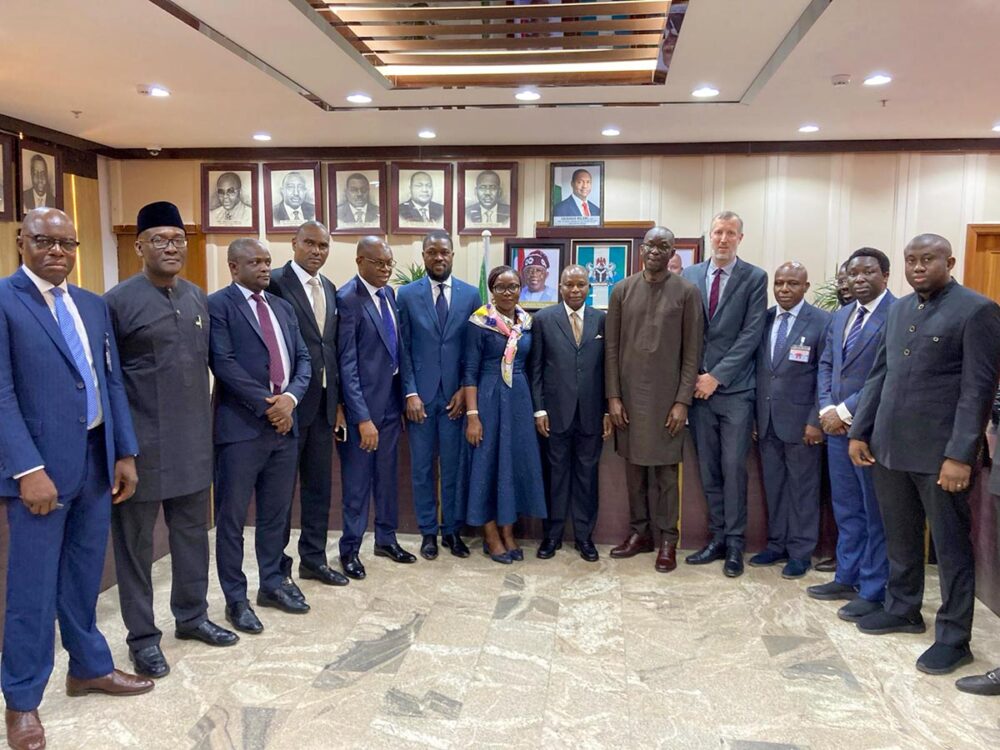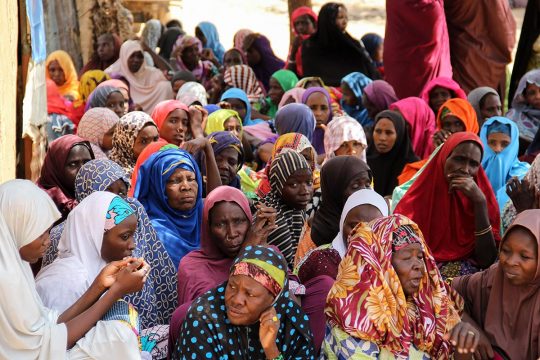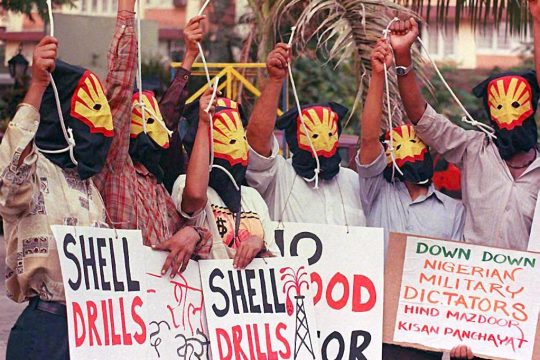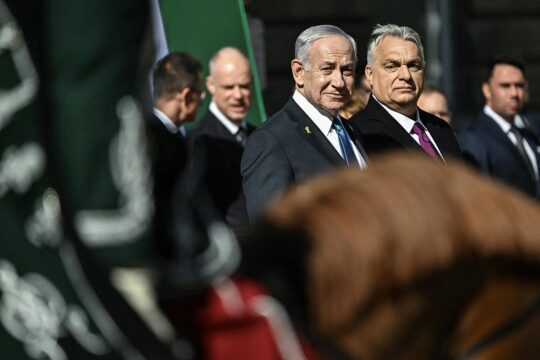“We are a voiceless society,” Hamsatu Allamin told Justice Info from Maiduguri, the capital of Nigeria’s north-eastern Borno state where her NGO, the Allamin Foundation, works with victims and survivors and advocates for accountability. “We have more than 300 NGOs and UN agencies working in my part of the country, but none of them goes into issues of human rights. Victims and survivors have nowhere to turn for redress, or even to be listened to.”
And the International Criminal Court (ICC) is not helping. The war between Jihadist group Boko Haram and Nigeria’s security forces has been ongoing for almost 15 years in the northeast of the country [see box below]. Gambia’s Fatou Bensouda, the former Prosecutor of the ICC concluded in 2020 there was “reasonable basis” to believe war crimes and crimes against humanity have been committed by both sides, and that this warranted a full ICC investigation. But three years and a half later, her successor Karim Khan of the UK has still not requested one.
On the part of Boko Haram, Allamin points to mass abductions of civilians, especially women and girls; sexual violence including rape, forced marriage and sexual slavery; and forced conscription of children. On the part of the military, she cites allegations of arbitrary arrests and disappearances, extrajudicial killings and sexual violence against women. “Some of them have even come out with babies, and some with pregnancies,” she told Justice Info. “I have registered some 800 women who have conceived and given birth in a military detention facility. And then there are a lot of allegations of torture.”
She says she has registered over 8,000 mothers and wives of the disappeared, and some 4,000 women and girls who have been abducted and sexually abused. Such allegations have been documented by numerous local and international NGOs, as well as the ICC Prosecutor. Both sides in the conflict have been accused of directing attacks against civilians.
Ongoing violations by both sides
The war was at its height between 2014 and 2016, but is still ongoing. Even though Boko Haram’s sphere of influence and attacks have lessened as the government regained territory, the pattern of abuses remains the same, says Matt Wells, deputy director of Amnesty International’s crisis response team. “We continue to see attacks on civilians, abductions, use of children – both boys and girls – by Boko Haram,” he told Justice Info. “And the same is true for the Nigerian military. We continue to see large-scale arbitrary detention of those who are perceived to be affiliated with Boko Haram, and no due process or steps towards fair trials. There continue to be inhumane conditions for those in detention.”
He says there have been some improvements over time by the Nigerian military, with fewer women and children being detained compared with the past, when it was on a “massive scale”. But, he continues, there has been no accountability.
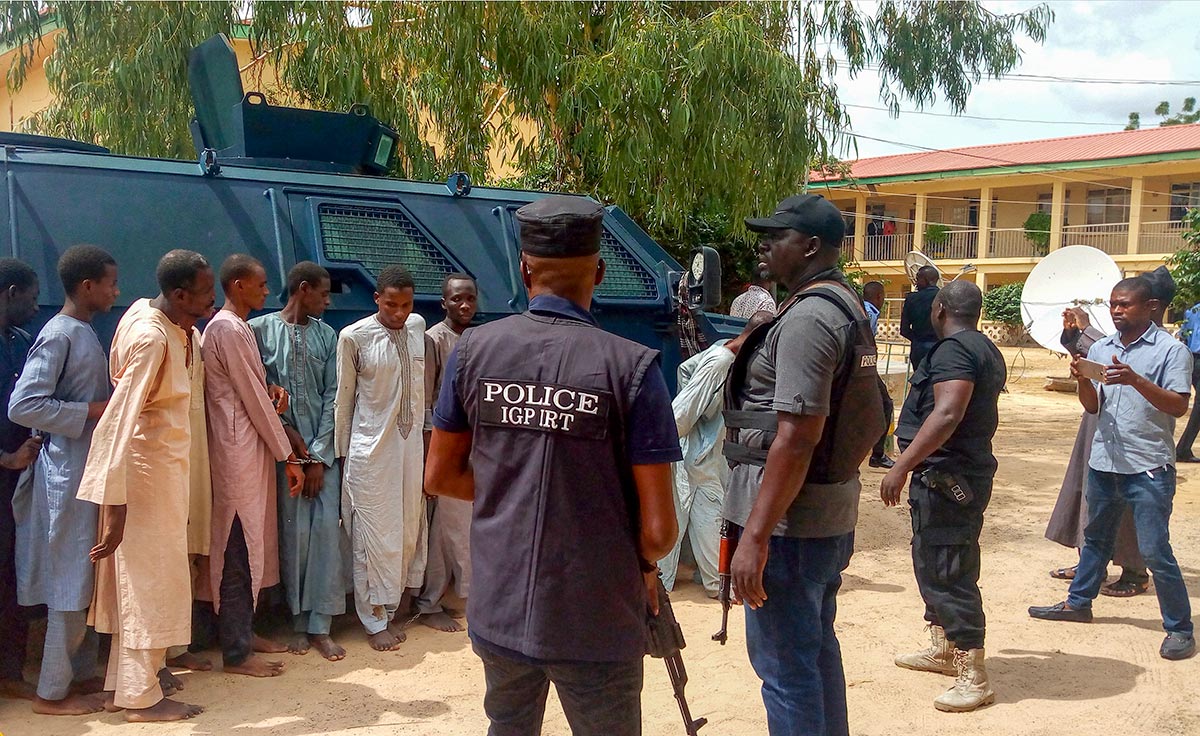
No accountability
Among one of her final acts before leaving office, former ICC Prosecutor Fatou Bensouda concluded a preliminary examination on Nigeria. She concluded that a full investigation was warranted, given the litany of crimes by both sides. “The duration of the preliminary examination, open since 2010, was due to the priority given by my Office in supporting the Nigerian authorities in investigating and prosecuting these crimes domestically,” says her statement of December 11, 2020. She said she had given them “ample time” to do so, but that “our assessment is that none of these proceedings relate, even indirectly, to the forms of conduct or categories of persons that would likely form the focus of my investigations”.
The ICC has a mandate to intervene in situations of serious crimes where the state concerned is not “able or willing” to investigate and prosecute. Bensouda has also described the “scale of violence” in Nigeria as “unprecedented” with around 40,000 deaths including over 16,000 civilians at the hands of both Boko Haram and the Nigerian armed forces.
Very few soldiers sanctioned
“I know of very few cases of soldiers being sanctioned, losing their jobs or being court-marshalled,” says Nigerian Malik Samuel, an analyst based in Abuja for the Institute of Security Studies (ISS). “I remember a case of torture. Soldiers tortured a young boy, and they tied his hands so hard that one of his hands had to be amputated. The soldier who did that was court-marshalled, he lost his job and was put in prison. But if you look at the profile of those who have been sanctioned, they are low-ranking soldiers.” No senior military officers have been investigated or prosecuted, he says.
The government has set up a number of committees and investigative bodies over the years, often in response to reports by the media and human rights organisations, says Wells of Amnesty International. “But with many of them, there has been no transparency on their conclusions and recommendations and they have not led to investigations and prosecutions of those most responsible.”
Amnesty International has denounced trials of Boko Haram fighters as sham trials. Allamin also says the government does not want to prosecute Boko Haram either, because the war is ongoing. It has killed leaders and offered amnesties to renegade low-level fighters, but many have come back and are “roaming amongst us”. She says children abducted and conscripted by Boko Haram are now committing atrocities.
Why has the ICC not followed up?
But, nearly four years after concluding that the Nigerian government was not doing enough and a full ICC investigation was warranted, the ICC is still dragging its heels. ICC Deputy-Prosecutor Mame Mandiaye Niang conducted an official visit to Nigeria in March this year, during which he said he had “constructive meetings” with the Nigerian authorities. “We will continue to monitor any progress regarding national proceedings and we will seek to give a chance to the principle of complementarity in Nigeria,” says his statement, with no timeline. Amnesty International slammed this statement, saying the ICC was again demonstrating its “slow abandonment of victims and survivors of the conflict in northeast Nigeria”.
“I think Nigeria has enough legal framework to do this investigation and prosecute these cases,” says Samuel. But he doubts it has the will, because “the military is a powerful institution in Nigeria”. Allamin agrees. “The government is not interested, and even if it were, the military is too powerful,” she says. “They will not cooperate.”
Samuel believes the ICC’s inaction may be at least partly to do with its change of Prosecutor. The current Prosecutor has different priorities, particularly with the wars in Ukraine and Gaza. “I think maybe the ICC is overwhelmed with cases, but that is not an excuse not to carry out an investigation like this,” he added.
Nigeria is a powerful country in Africa and the region. As an ICC member, Nigeria has supported the court notably when it came under attack from the administration of former US president Donald Trump. If it were to investigate its own military for abuses when fighting terrorism, that would have ripple effects in the region, Samuel continues. Regional leaders would not like that. “But from a victims’ point of view, people should not be getting away with crimes. Part of the reason for investigation, prosecution and punishment is also for deterrence, to stop these crimes happening now and also in the future.”
Zero budget policy
Wells also thinks there may be budget and resource issues for the ICC, but that is not an excuse, and member states should step up. Amnesty International denounced the fact that in 2023 the ICC Office of the Prosecutor had zero budget for Nigeria, compared with 4.45 million euros for Ukraine, 3.5 million for Darfur and 2.66 million for Libya, for example. Asked about its Nigeria budget for this year, the Prosecutor’s office did not respond. Its budget lines per country situation are no longer public.
“From our perspective and that of many others, the scale of the crimes we’re talking about over this length of time, the impact it has had on civilians across the northeast and the fact that more than a decade into this conflict there is still no meaningful accountability, it cries out for the ICC to swiftly move towards an investigation, to begin the process of building cases against those most responsible,” says Wells.
A gap in the Rome Statute
But he does not hold out much hope that this will happen in the short term. The main cause for optimism on justice, he says, is that the crimes have been documented by many over the years and the “mountain of evidence” means there could still be accountability one day. But there is a black hole in the Statute of Rome, the ICC’s founding treaty, which set no deadline between the Prosecutor concluding that a full investigation is warranted and actually asking for one.
“I would have loved the ICC to intervene, but the window of opportunity is becoming narrower, I would say even closed,” says Allamin. Her organisation is now advocating for some form of transitional justice in the north. She says the government has shown interest.
“Our context is complex,” she told Justice Info. “The Boko Haram are also our boys, and many of them are still victims. And even the Nigerian military whom now we are accusing, can you believe that one of them said ‘Mama, we are also victims’. We all are victims. Transitional justice should be drafted in such a way that it suits our local context. Truth-telling, apologies and remedies could be part of it. It has to be the government leading. But then the international community has to support us, and make it happen.”
BOKO HARAM: 15 YEARS OF INSURGENCY
Nigeria is Africa’s most populous country, and is split roughly half and half between Muslims (mainly in the north) and Christians (mainly in the south). Its Muslims are mostly Sunni, but there is a significant Shia minority. The Jihadist group Boko Haram – allied to Al Qaeda and then Islamic State – launched an insurgency in 2009, which also spread to parts of neighbouring countries. Its stated aim is to spread Sunni Islam, “purify” Shia Muslims and overthrow the Nigerian federal government. In 2013, after Boko Haram had captured large swathes of territory in the north, the government launched a counter-insurgency offensive. It has succeeded in taking back territory and killing Boko Haram leaders, but the impact on civilians – particularly women and children – has been devastating. More than 2 million people have been displaced. Local and international NGOs, as well as the International Criminal Court, have documented serious atrocities against civilians by both sides.


